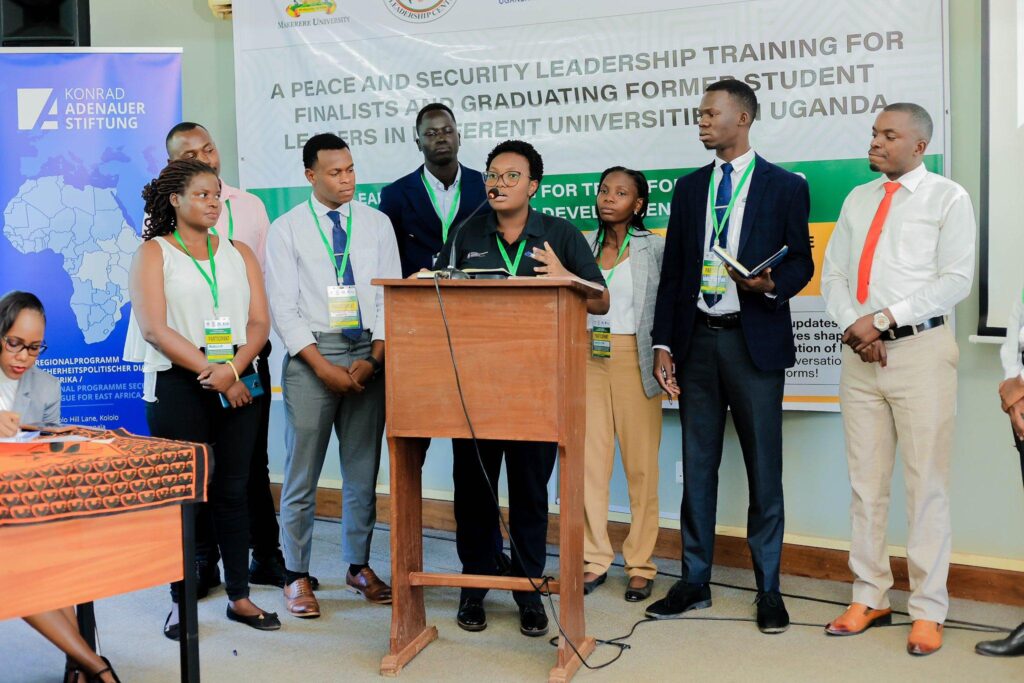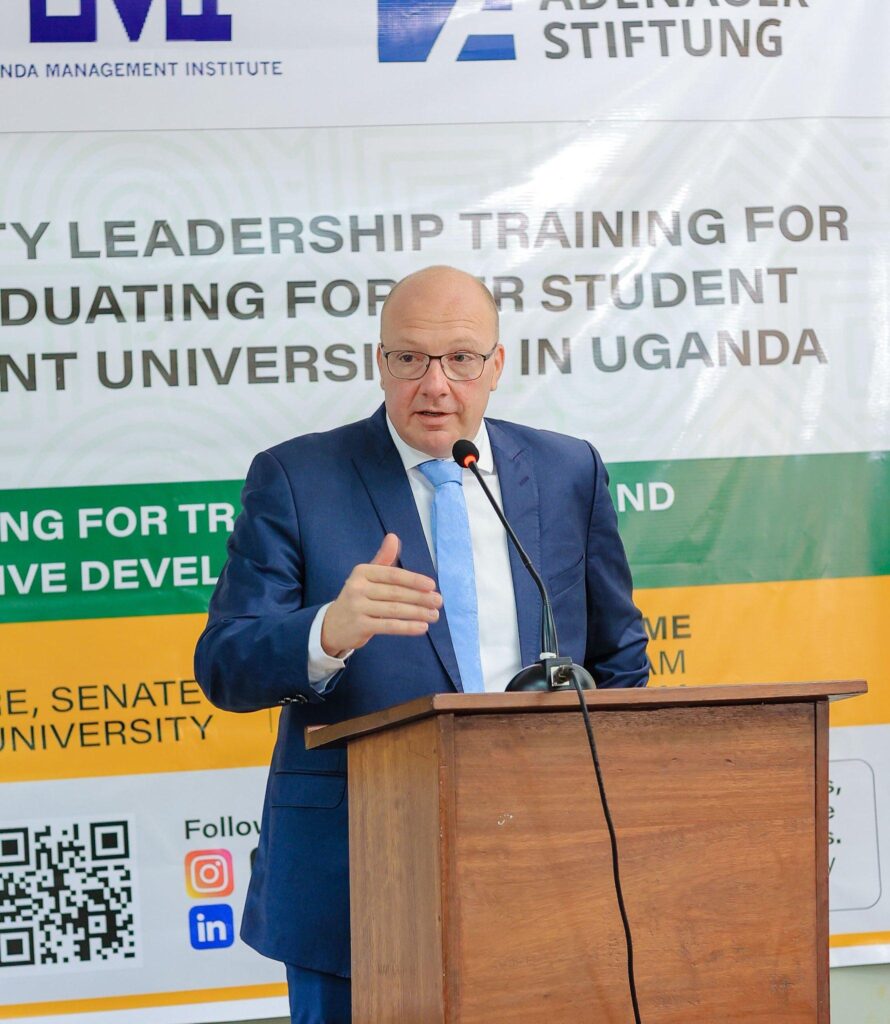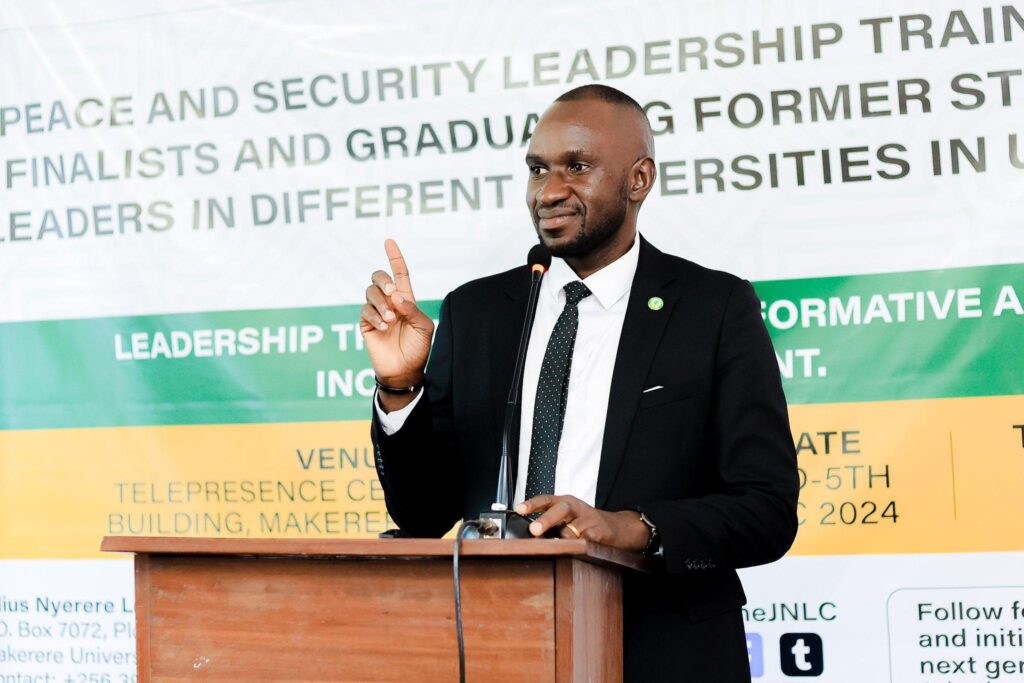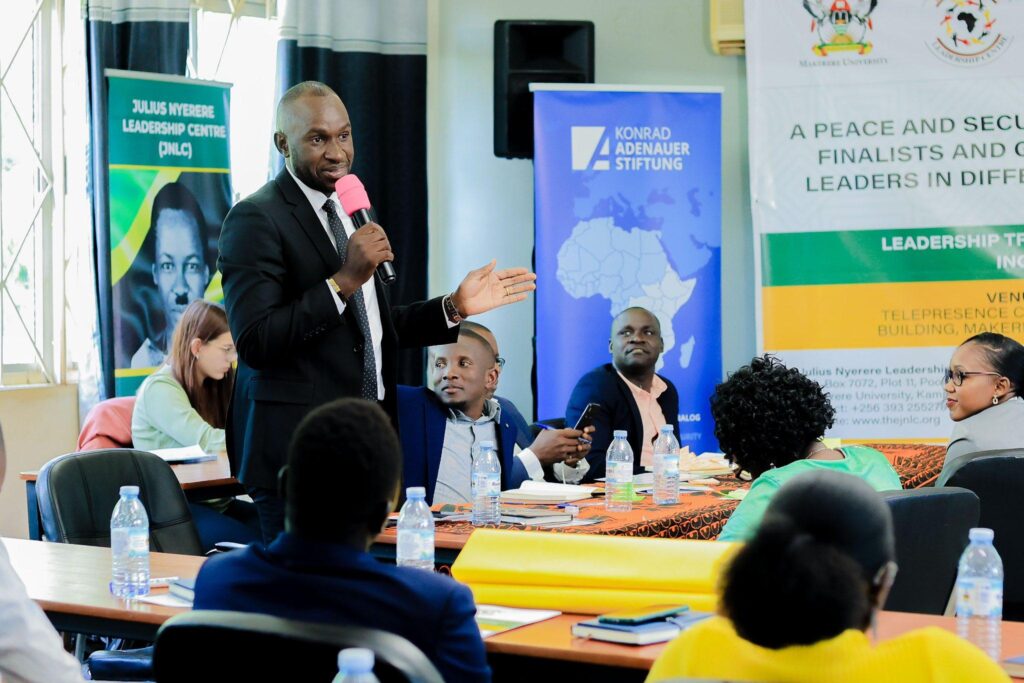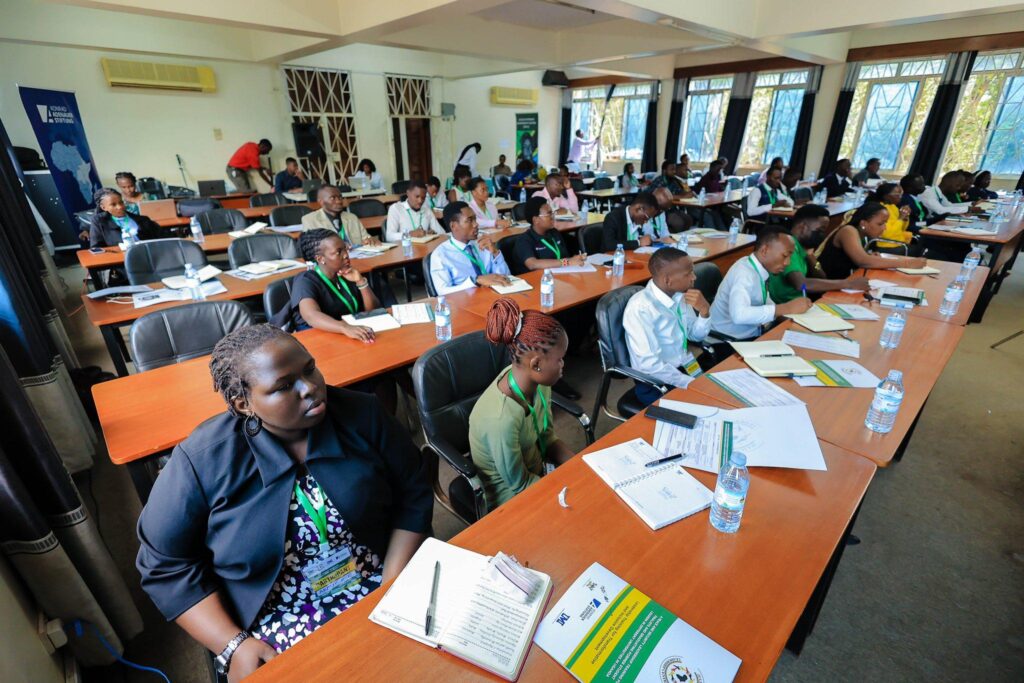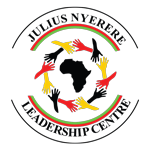By Carol Kasujja Adii
Dr. Simba Sallie Kayunga, the Commissioner at the Electoral Commission, has urged University student leaders to embrace unity if they want to live in a peaceful society.
He made the remarks on Wednesday 4th December 2024, during the second day of training of finalists and Graduating former student leaders from different Universities in Uganda. The training was conducted by Julius Nyerere Leadership Centre (JNLC) in partnership with Konrad Adenauer Stiftung (KAS), at Makerere University.
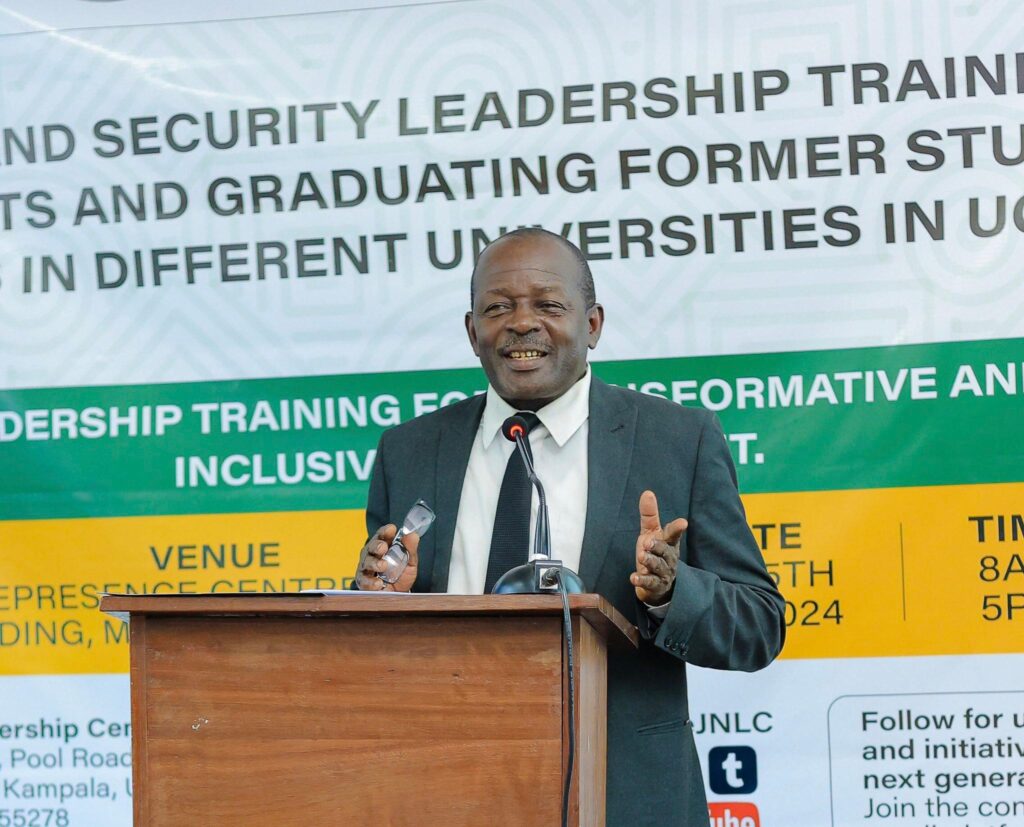
While delivering his overview of Mwalimu Julius Nyerere’s Ideas and Ideals in relations to Peace and Conflict, Dr. Simba explained that in order to achieve peace, Mwalimu Nyerere believed that it was essential that women live on terms of full equality with men, as their fellow citizens.
Dr. Simba explained that in order to achieve peace, there must be equality because people cooperate more effectively if they are equals.
Highlighting Nyerere’s ideas on peace, Dr. Simba pointed out that Mwalimu Nyerere saw tribalism as one of the biggest dangers to African progress, unity and peace. He reiterated that Mwalimu Nyerere was opposed to racism. He was a great supporter of a multi-racial society.
“Let us desist from manipulating our ethnic and religious identities, or any other identity to our political advantage. Let us embrace the principle of Pan-Africanism. We must have been born differently, but all of us have a contribution to make to our mother Uganda, our continent called Africa. We must, therefore, value and respect each person’s contribution to society,” Dr. Simba said.
Mwalimu Nyerere at glance
Mwalimu Julius Nyerere was born on 13th April 1922, to Nyerere Burito and Mgaya Nyang’ombe, at Mwitongo, a village in Butiama in Tanganyika’s Mara Region. He went to Native Administration School in Mwisenge, Musoma for his Primary and later joined Elite Tabora Government School, for his secondary Education.
Mwalimu Nyerere later joined Makerere University College in January 1943, to pursue a Diploma in Education. While at Makerere, he was an active member of the Makerere Debating Society.
Upon completing his education at Makerere University, he went to teach at St Mary’s Secondary School, Tabora. In October 1949, Nyerere joined the University of Edinburgh to study a Master of Arts. In 1952, he graduated with a Master of Arts in History and Economics and returned to Tanzania to teach.
In 1948, Mwalimu formally engaged to Maria Gabriel, and they officially married at Musoma mission on 24th January 1953.
Upon his return, Nyerere joined the Tanganyika African Association, becoming its President in 1953.
Mwalimu Julius Nyerere resigned as President of the United Republic of Tanzania on 5th November 1985, and handed over the presidency to Ali Hassan Mwinyi. He died on 14th October 1999.
Participants equipped with skills
During the second day of the training, over 60 participants listened were equipped with skills through presentations and practical sessions on team building for mediation, negotiation and resilience.
Ronald Ssazi, a Clinical Psychologist, presented the ethos that are crucial for creating an effective team culture.
“Start with investing into a team. When you have a team, go ahead and pay the price for team development. It helps with the growth of the team. Empower team members with responsibility and authority in order to groom and raise leaders for the team,” Ssazi highlighted.
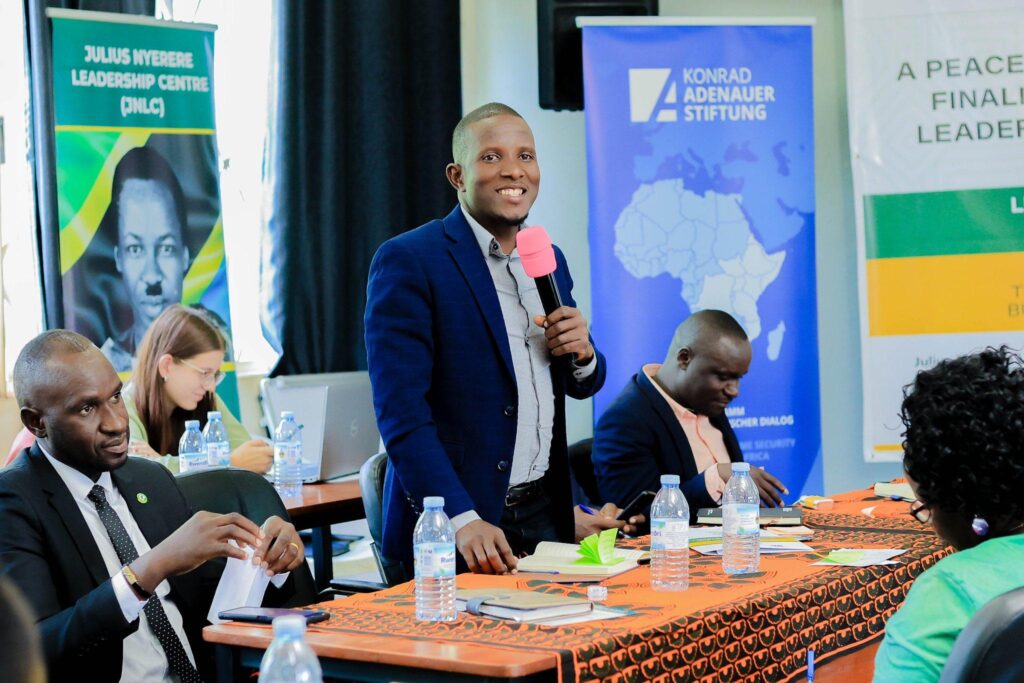
Ssazi stressed that disagreements and conflicts are bound to happen in a team, but he guided on the need-to find healthy ways of handling them diplomatically.
Re-echoing the words of wisdom from Mahatma Gandhi, David Nyaribi, a representative from ActionAid Uganda encouraged the student leaders to always be the change they want to see in the world. Nyaribi urged them to be Servant Leaders who exemplify integrity and a great work ethic to transform Uganda and Africa.
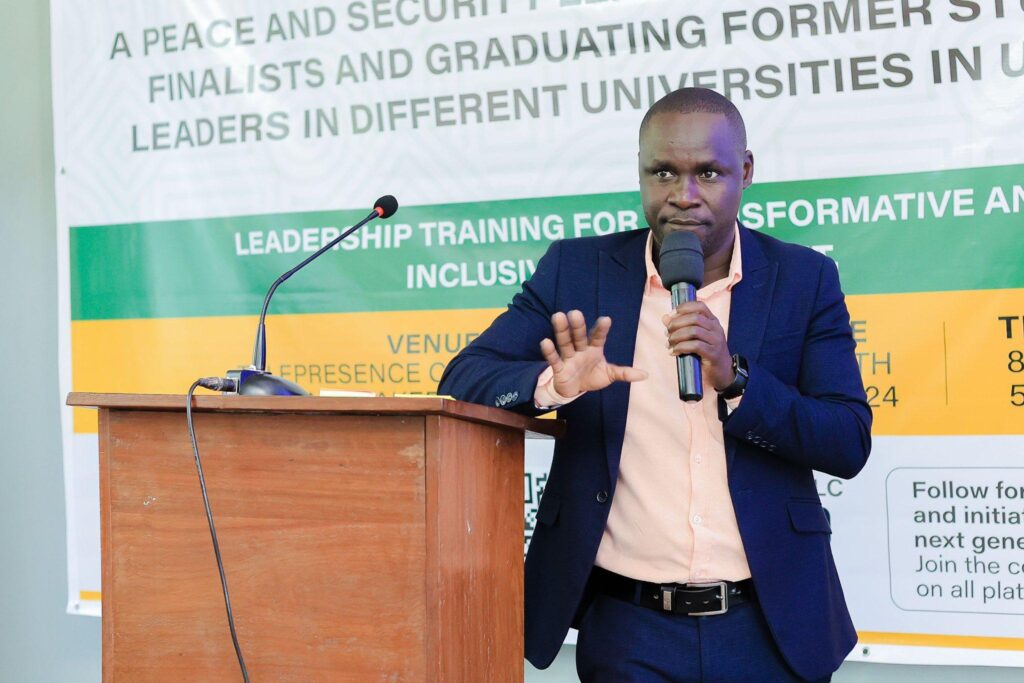
Robert Muhangi, a Lecturer at Uganda Christian University-Mukono, called upon student leaders and the young people to always utilize indigenous ways to provide solutions to some of the problems they come across other than prioritizing external interventions.
“The best time to become a village champion is when you have just left University, let people look at you like a champion. When you solve conflicts by providing solutions, trust me, you will not look for a job, the job will look for you,” Muhangi stated.
The practical session on Building Bridges for Peace and Security, focused on identifying the root causes of conflict, applying emotional intelligence, financial literacy and crafting strategies for community-based conflict resolution.




